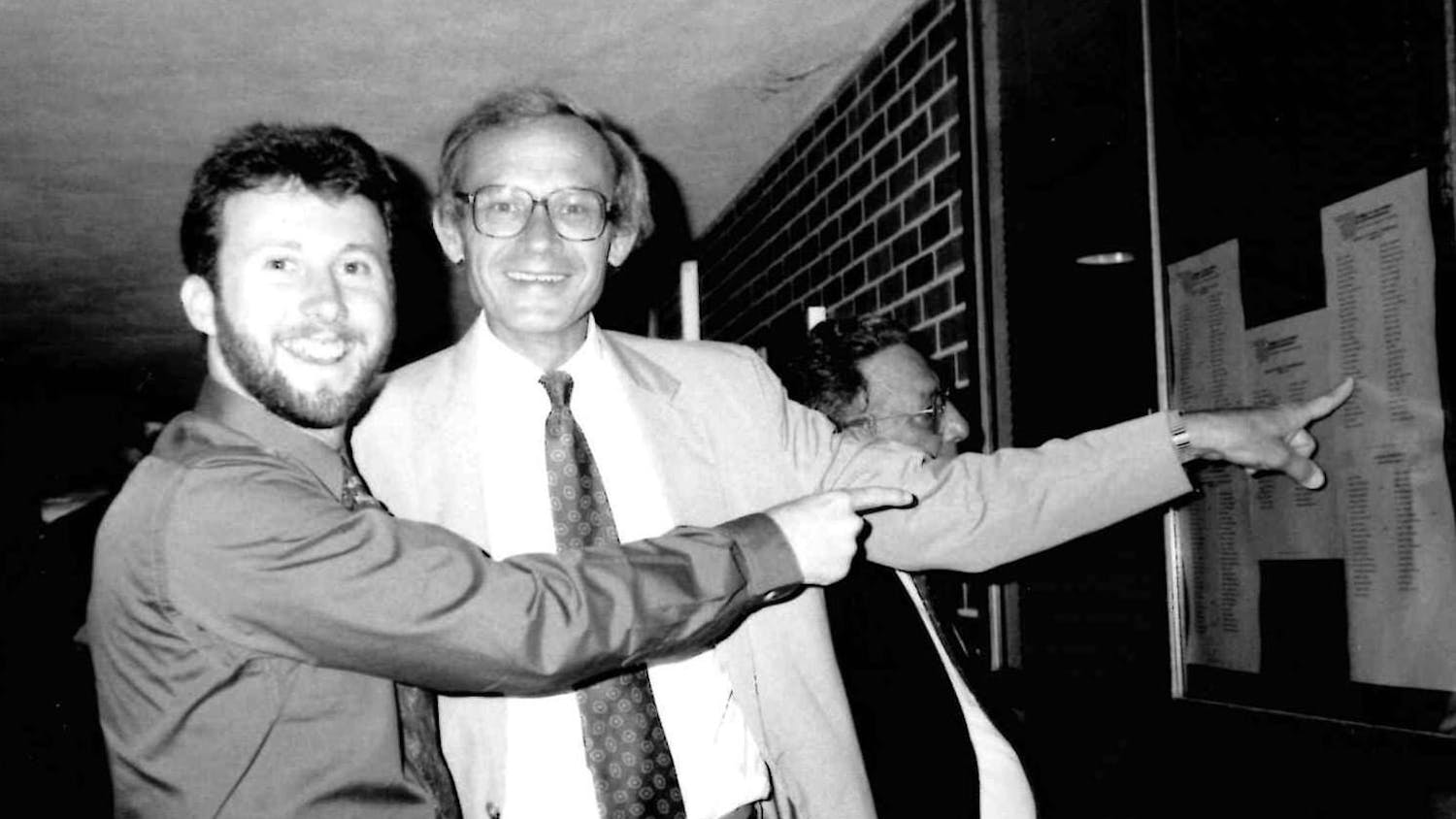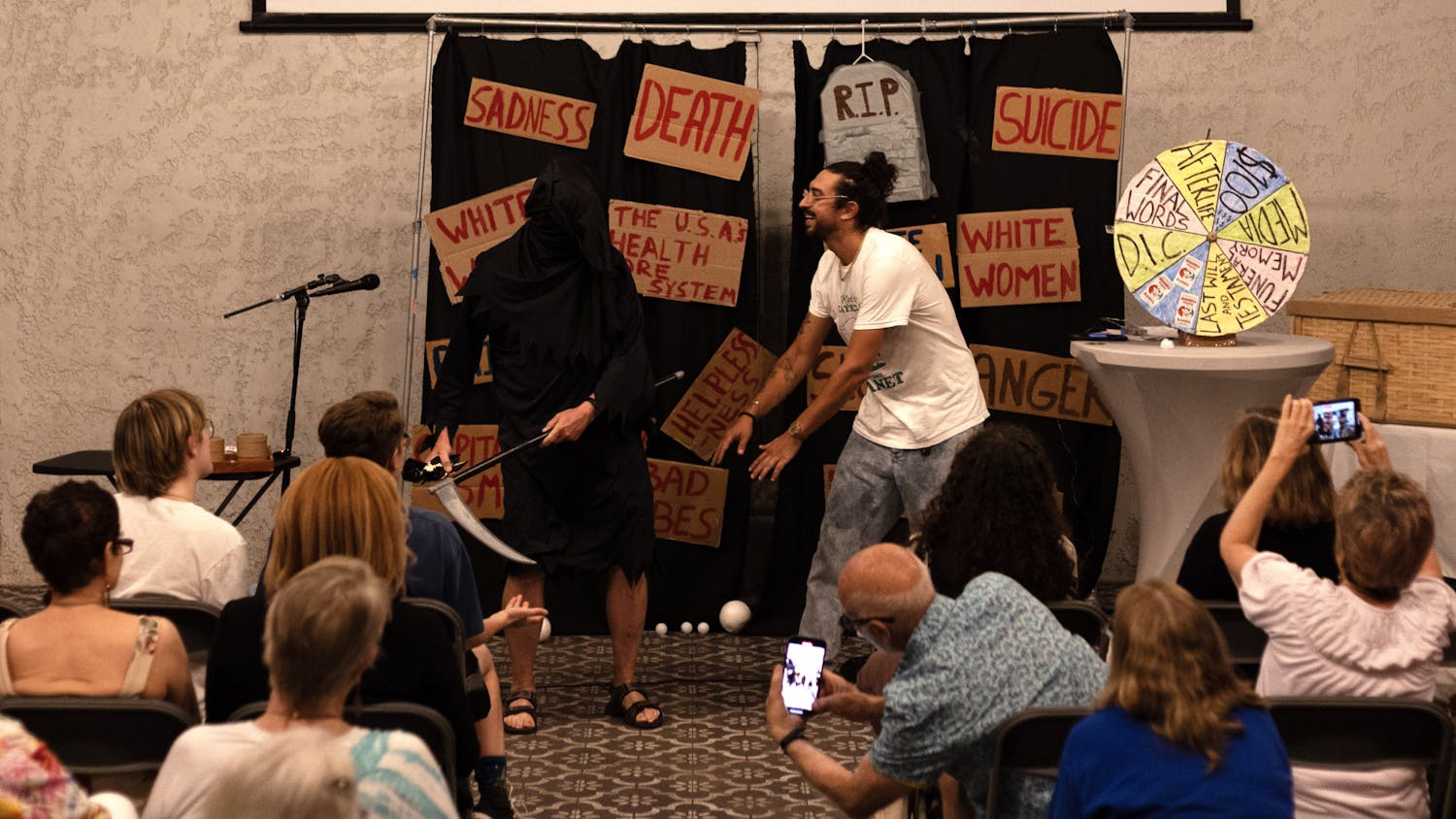Although Woody Allen’s quip, “I don’t want to achieve immortality through my work; I want to achieve immortality through not dying,” is famous, the best line about death comes from British entertainer Bob Monkhouse: “I want to die like my father, peacefully in his sleep, not screaming and terrified, like his passengers.”
Death can be a funny topic, but usually, it isn’t. How come?
For starters, no one likes thinking about death. We love this whole “living” phase, and most people will try anything to stay alive. But why do people cling to life so tightly while no similar fetish for death can be found?
Relatively speaking, not too many humans have come into existence, yet we’re among the lucky few. Each of us is a statistical anomaly — call it a miracle, if you want to get corny. Kurt Vonnegut, a lifelong atheist, said it best: “God said to some of the mud, ‘Sit up!’... And I was some of the mud that got to sit up and look around. Lucky me, lucky mud.”
But unlike the diversity of life, death is definitive. It is the grand finale for everyone — no matter how a person lives, death takes you to where you are, simply no more.
Despite the obviousness of death, few people take it seriously, and even fewer in our age group do. This is normal, considering that even soldiers facing death think, “It can’t happen to me. I’m too clever/agile/well-trained/good-looking/beloved/tightly laced, etc.”
As Henry David Thoreau wrote, “A man can attend but one funeral in the course of his life, can behold but one corpse.” It’s only when someone actually dies that he or she can finally wake from the slumber of life to the reality of death.
But a logical question arises: What’s the point of life if we’re all dead in a few years anyway?
Life’s intrinsic value comes from knowing that death is around the corner. There is an invisible stopwatch somewhere out there, counting down the seconds that each of us has remaining on this planet, and this is what makes life so precious.
One of the founders of the Streetlight program at UF Health Shands Hospital, Rebecca Brown, told me how, one frosty morning, while walking across her nature trail, she came across a shimmering spider web. In the middle of the web lay a dead spider, frozen from the cold.
Brown says about the dead spider, “Spinning a web is what she does … she died in her web, and that is an honorable way to go.”
Meeting death, while doing what you are meant to do, to borrow from Brown’s eloquence, “means to die, living.”
Leo Tolstoy’s “The Death of Ivan Ilyich” sheds some light on what we are “meant to do.” The main character, Ivan, is petrified of parting with his comfortable life and begins to howl ceaselessly for three days and nights on his deathbed. He repeatedly refers to death as “it” — using the impersonal pronoun to convey how far-off the concept of death appears. At the same time, “it,” in Russian, also means “she” — suggesting how intimate death actually is.
An hour before Ivan’s death, he glances at his family and for just a moment, feels genuine sympathy for them. Suddenly, “instead of death there was light,” writes Tolstoy.
In being genuine — not merely going with the tides of social norms — and compassionate, we transcend death. A 19th century poet, Thomas Campbell, confirms this: “To live in hearts we leave behind is not to die.”
Zulkar Khan is a UF microbiology senior. His columns appear on Tuesdays. A version of this column ran on page 6 on 1/21/2014 under the headline "Celebrate life by not fearing death"





